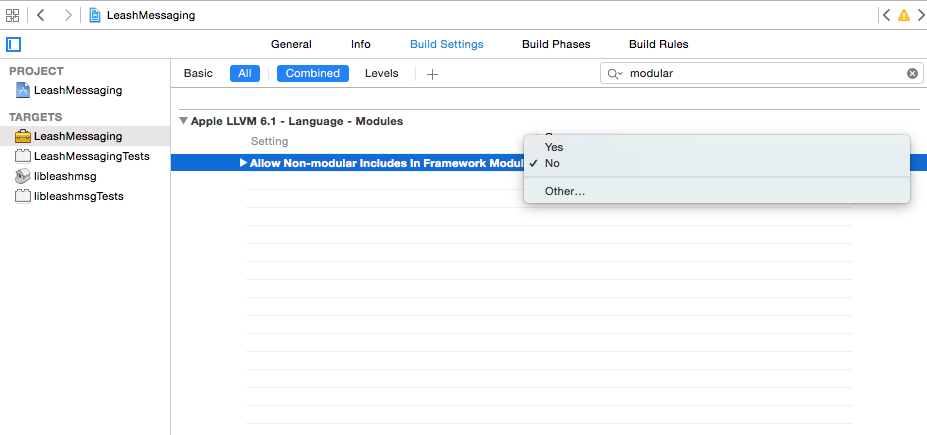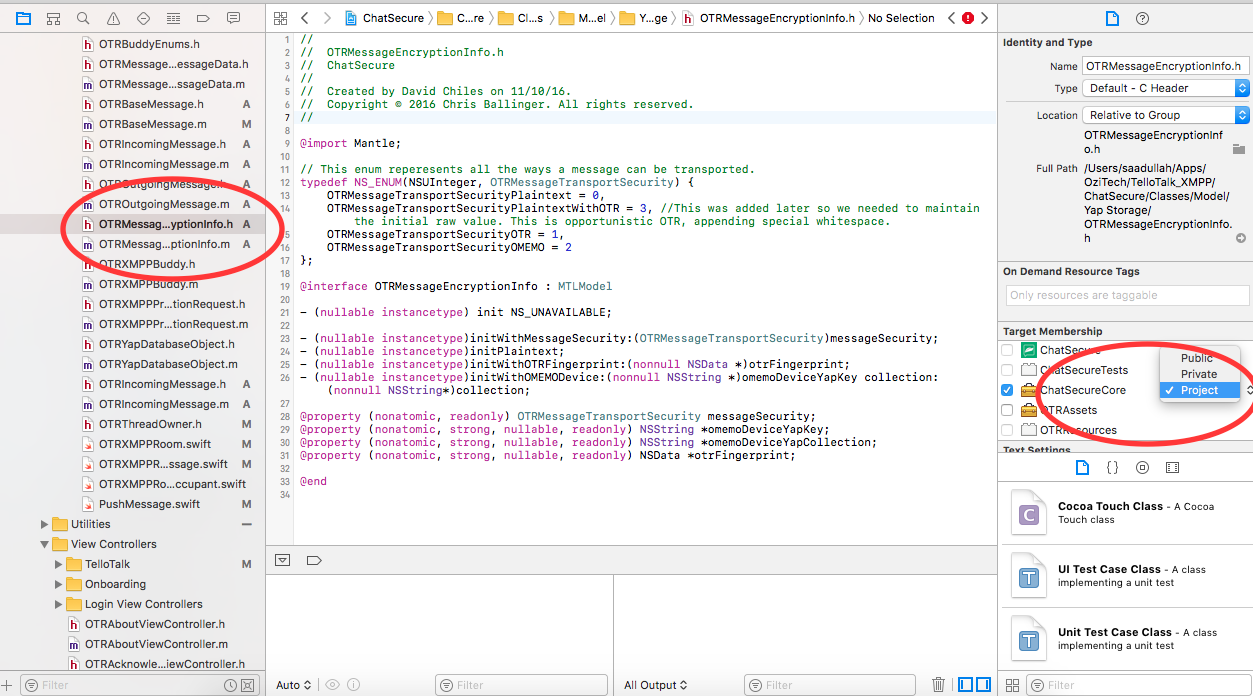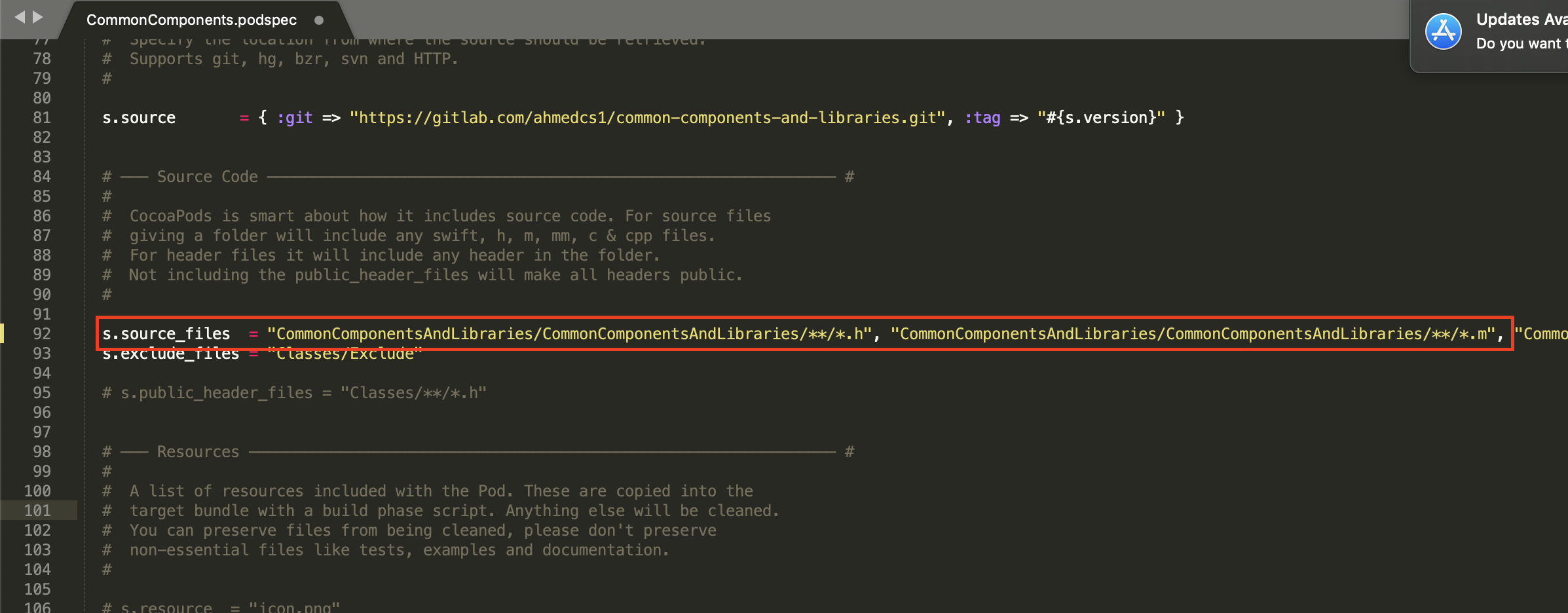I am using Xcode 6,
1) Firstly I am creating a dynamic library (CoreLibrary). This library contain RequestPoster.h file.
2) Then I create a Cocoa Touch Framework and added this dynamic library (CoreLibrary).
3) Then this framework is add on my project and it gives error in RequestPoster.h file (CoreLibrary).
Error : Include of non-modular header inside framework module class :
ifaddrs.h, arpa/inet.h, sys/types.h>
These file not found in the project.



![[problem]](https://static.mcmap.net/file/mcmap/ZG-AbGLDKwfpKnMAWVMrKmltX1ywKmMva3/W7dX8.png)

